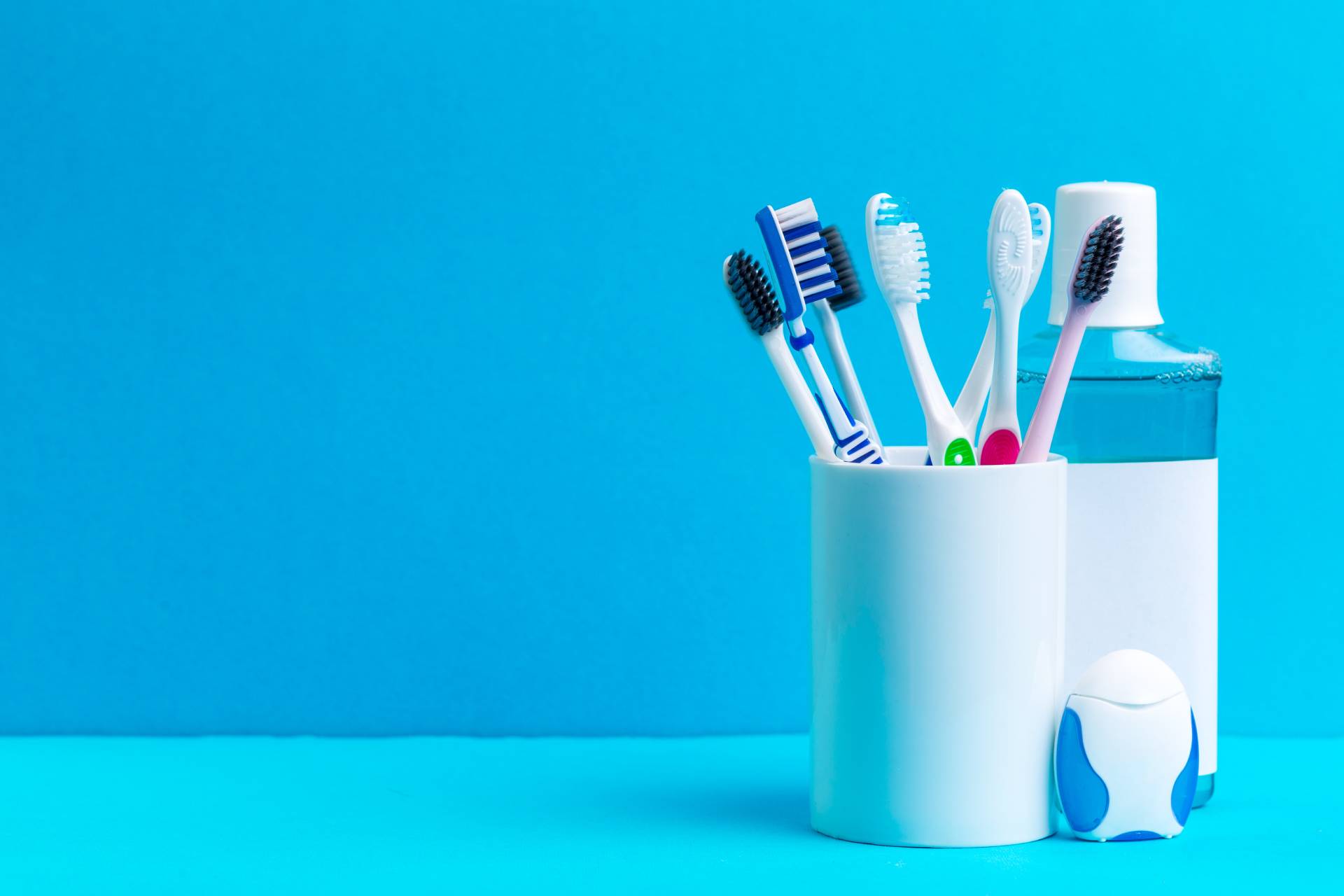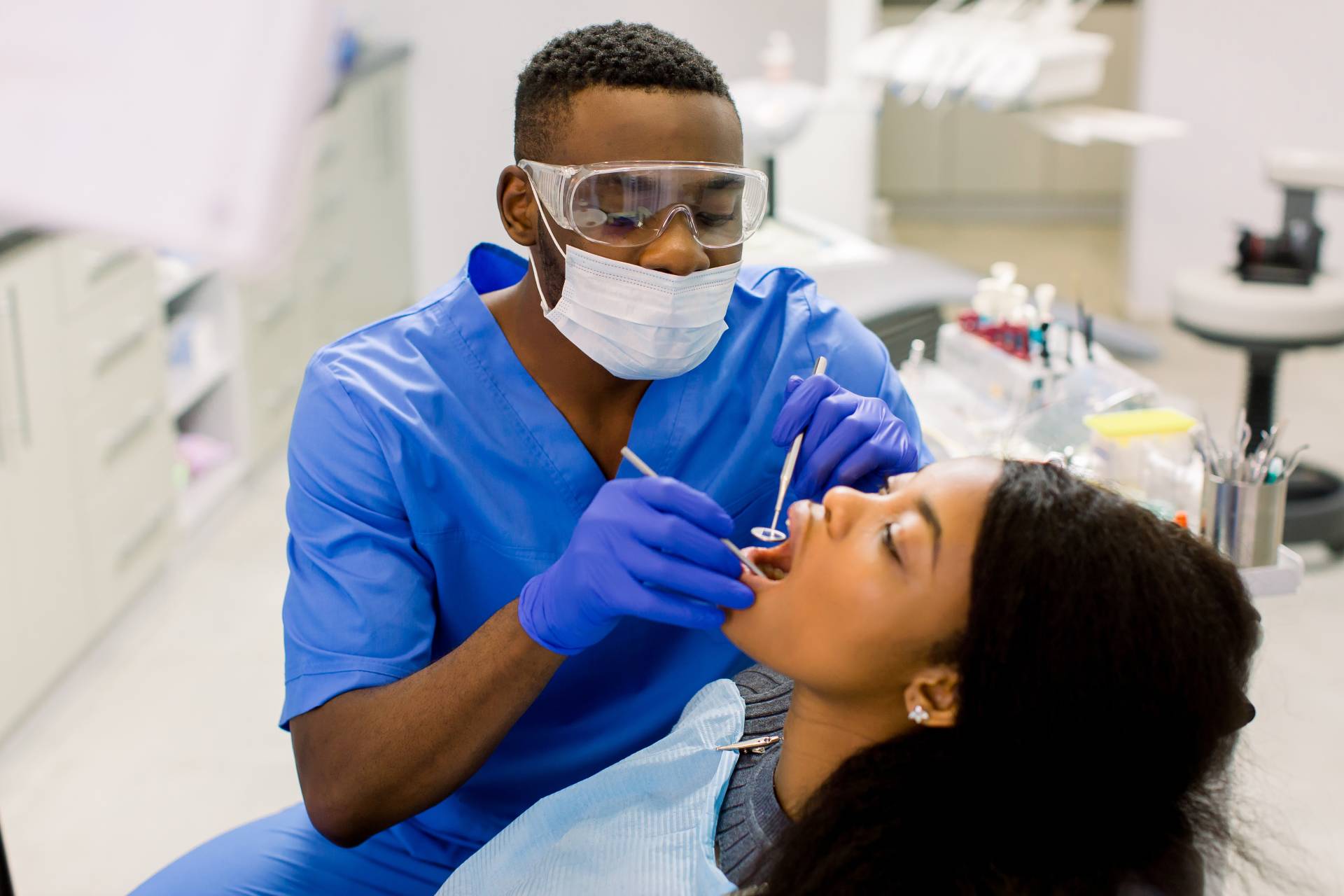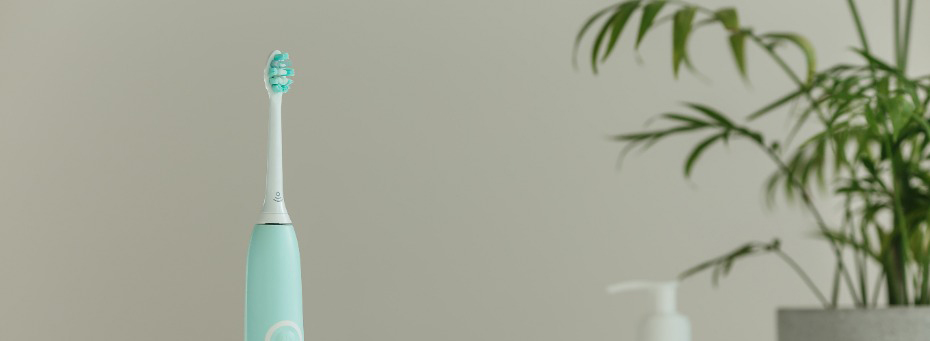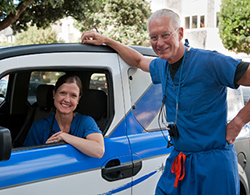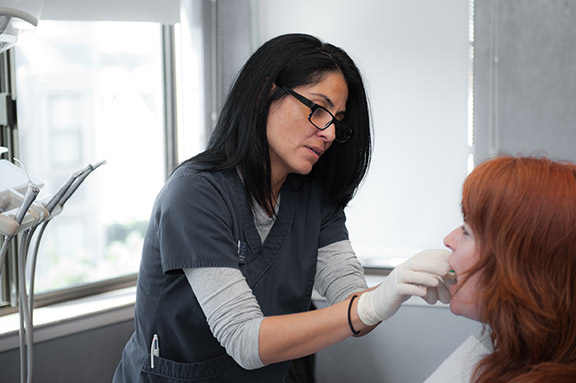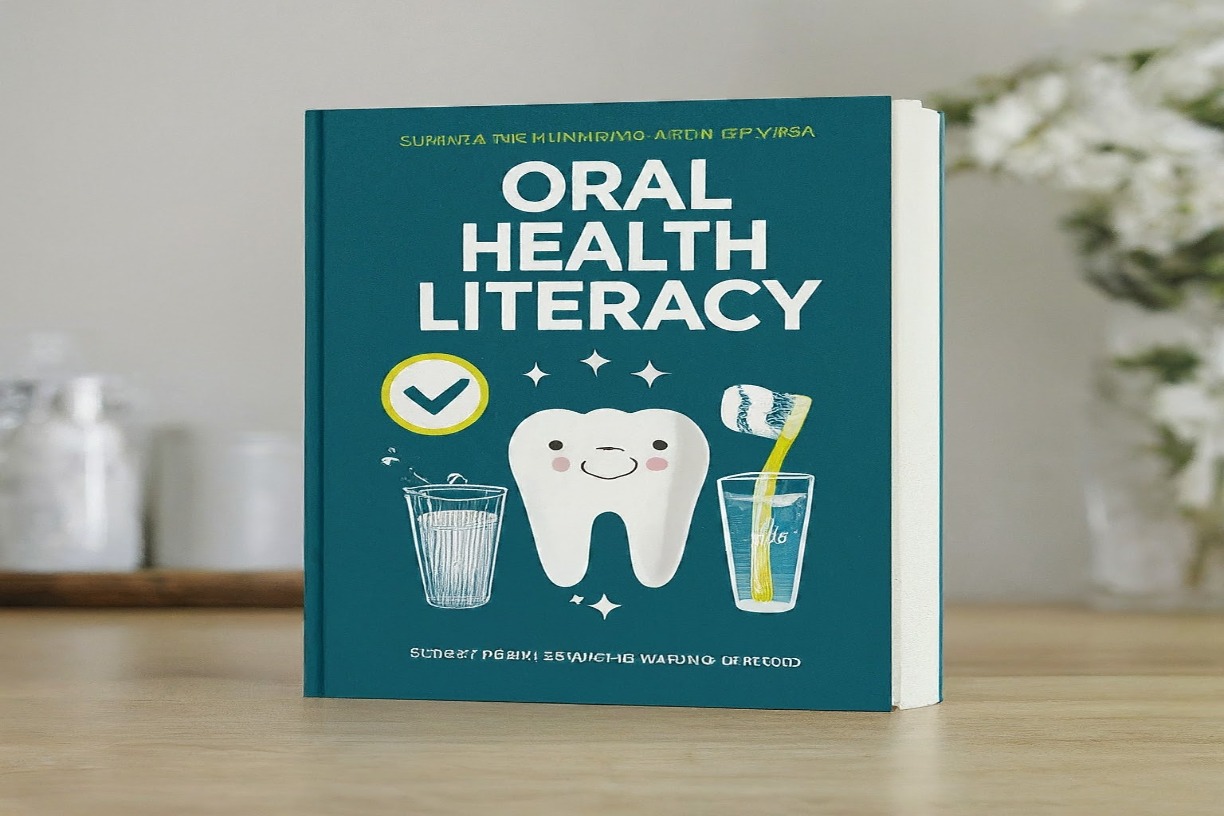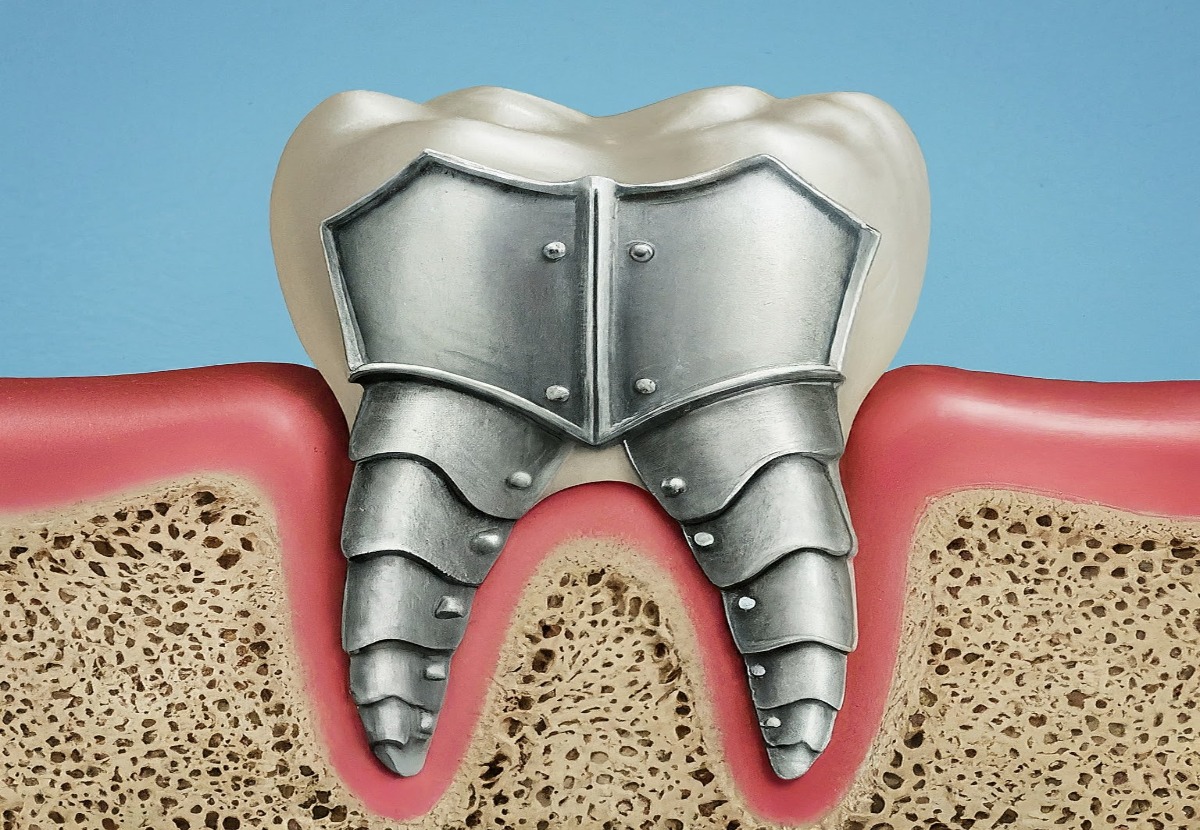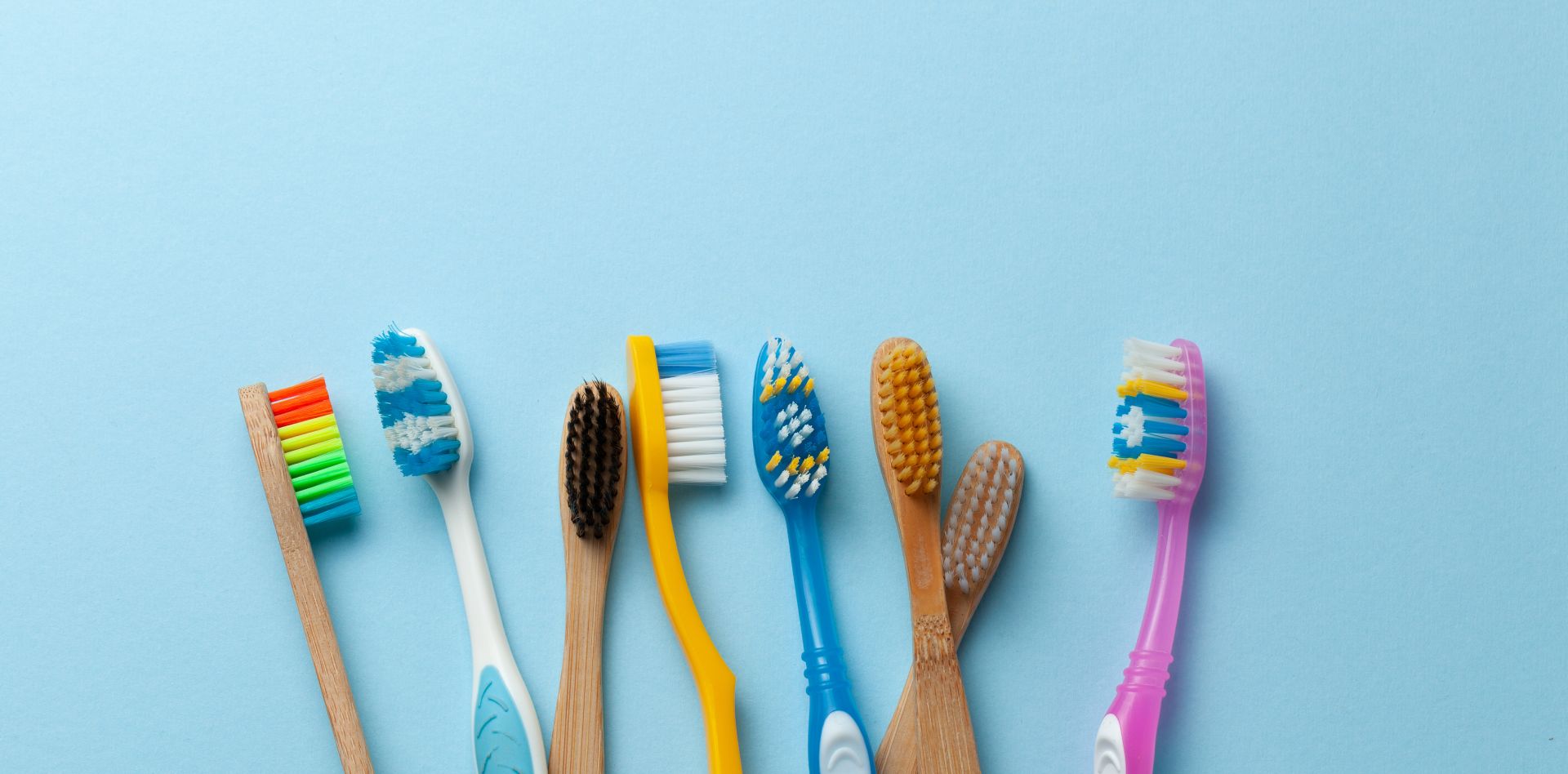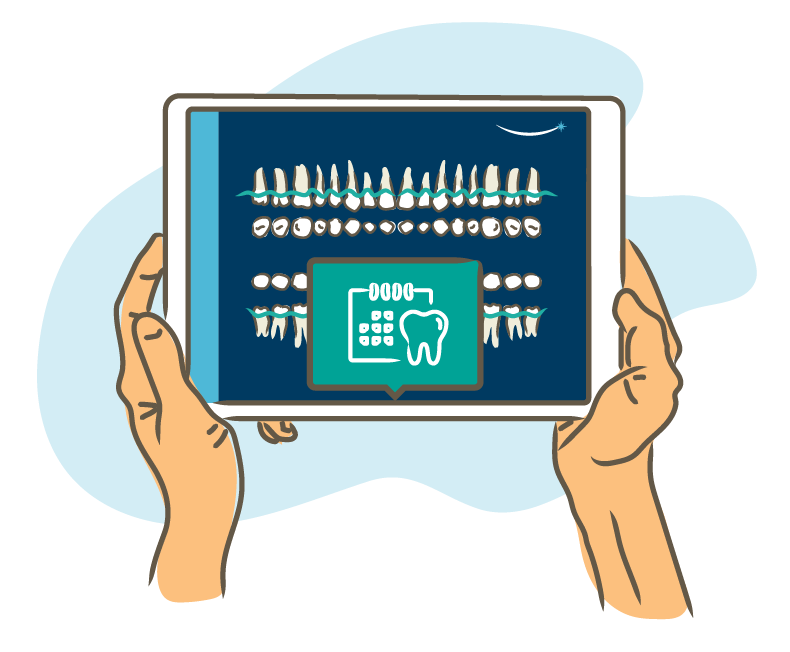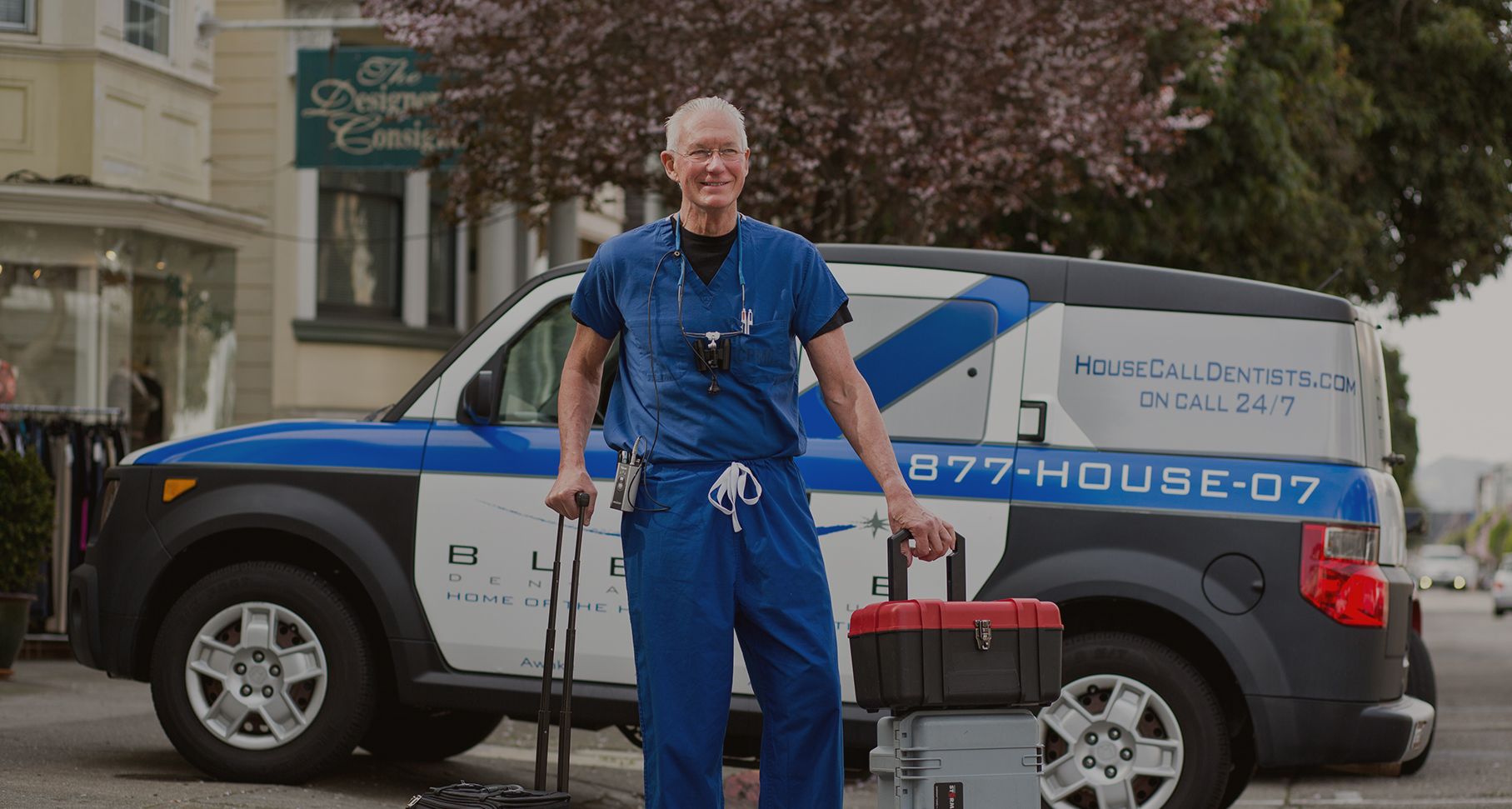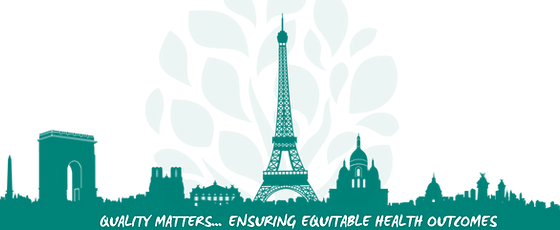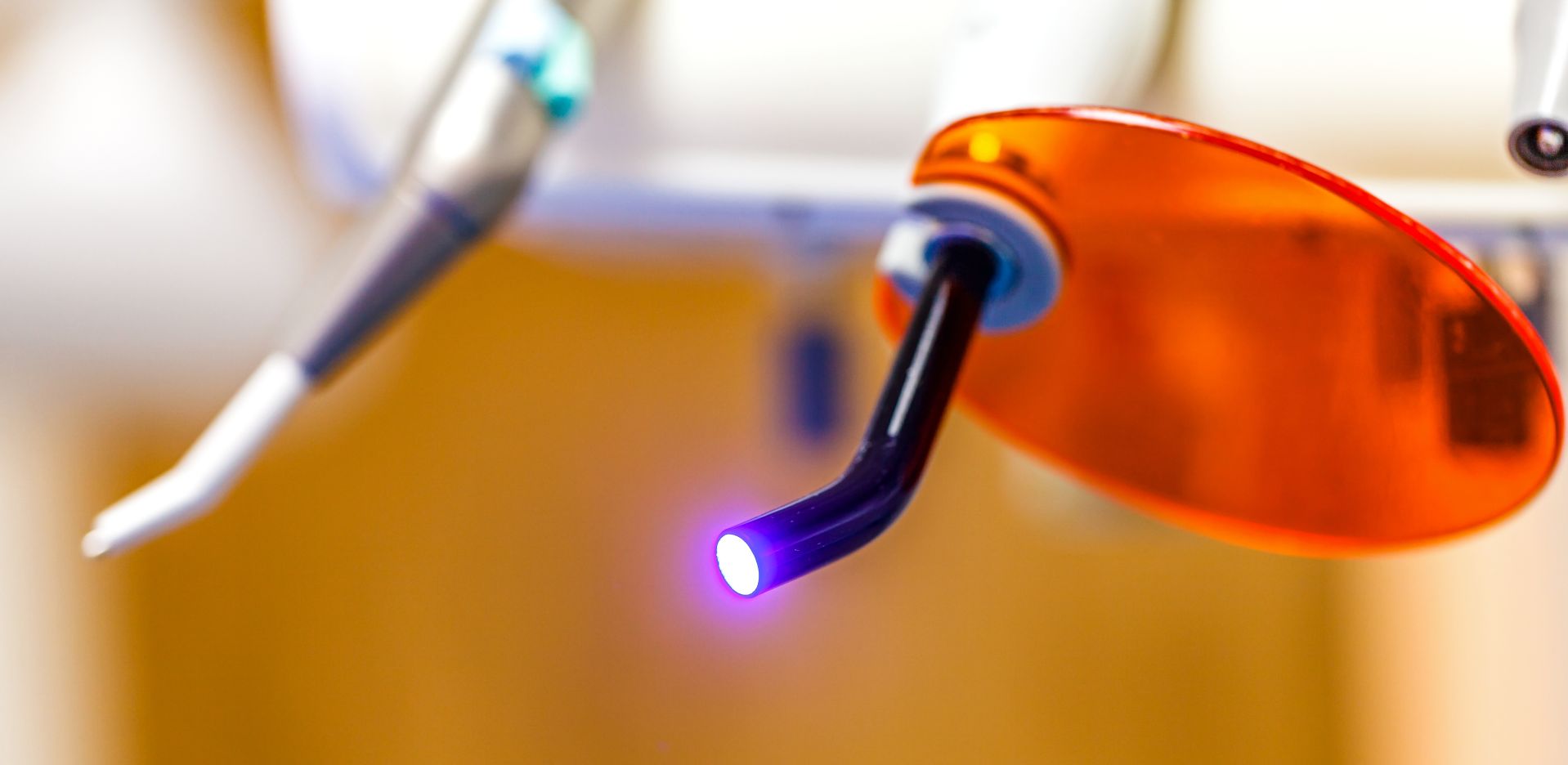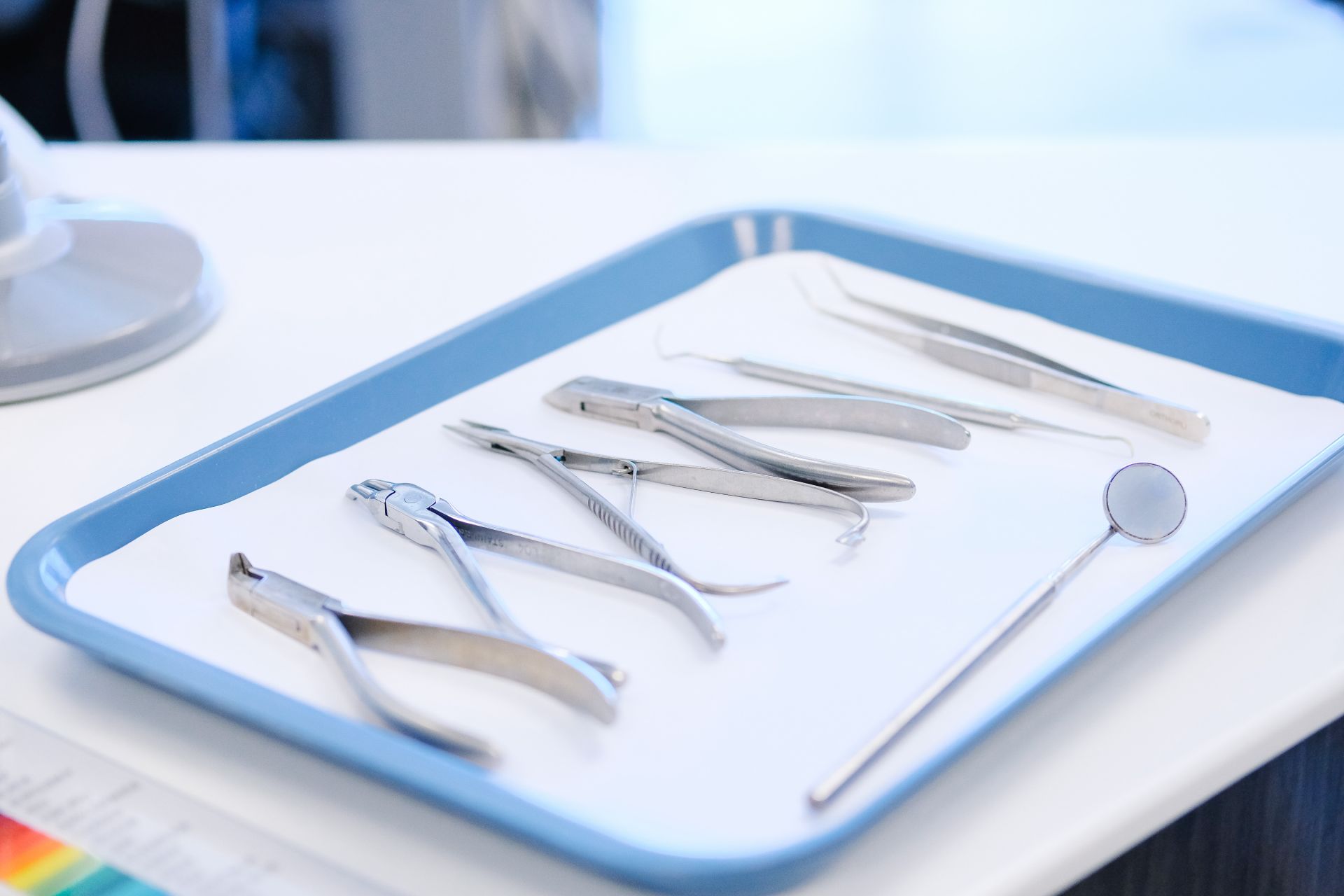All Posts
Proudly Display a Healthier Smile this LGBTQ+ Pride Month
bbadminist011
June 1 marks the first day of LGBTQ+ Pride Month. Equality, inclusion, acceptance, and support for friends and loved ones in the community are critical to the advancement of our society. We talk a lot about these issues during Pride, but the subject of health is often pushed aside. It shouldn’t be. The National Institute on Minority Health and Health Disparities identifies the LGBTQ+ community as a “health disparity population” due to lowered access to health coverage – including dental care. Clinical research shows that sexual and gender minorities who live among high levels of prejudice will die sooner – 12 years on average – than those residing in more accepting environments. Because oral health affects physical and mental health, the issue is too important to discount.
A Growing Community
The number of people in the LGBTQ+ community has risen steadily over the years. According to the most recent Gallup Poll on the topic, published in February 2021, 5.6% of U.S. adults identify as LGBTQ – up from 4.5% in the 2017 survey. Within the ranks of Generation Z (those born between 1997 and 2002), the number climbs to 15.9%. Given these facts, combined with the problem of “health disparity,” providing LGBTQ+ people with access to safe, comfortable, and compassionate oral health care is vital.
LGBTQ+ Dental Issues
Risks Associated with HIV and Hepatitis
Academic research data indicate that bisexual, lesbian, and gay individuals are more likely to rate their oral health unfavorably when compared to their straight peers. Because oral and physical health are intrinsically linked, dentists must be open to discussing concerns beyond oral health to support the needs of this patient group.
Although LGBT people experience higher rates of HIV and hepatitis, these diseases do not represent the singular causes of health risks for the population. They persist, however, as serious risk factors. HIV lowers the body’s immune system and ability to fight infection, which includes infections in the mouth or gums. Some HIV medications also produce side effects that lead to oral health problems.
Substance Abuse and Homelessness
As a result of systemic discrimination and disadvantage, LGBTQ+ people often succumb to higher rates of homelessness and substance abuse than the general population. These circumstances make routine oral hygiene challenging, with dental avoidance leading to tooth decay and other dental complications. For transgender people undergoing hormone therapy, there are additional risks of osteoporosis, changes in bone density, and gum disease.
Mental Health
LGBTQ+ people experience unique hurdles and different stresses than other underrepresented groups, which can contribute to poor mental health. What patients may not realize is the impact of mental health challenges on dental care. For example, people living with anxiety or depression are less likely to maintain a regular oral hygiene regimen. They’re also less prone to scheduling routine dental checkups and cleanings. In certain cases, mental health issues can result in eating disorders, which propel the onset of dental problems.
Communication
Facing ongoing and widespread discrimination, LGBTQ+ are naturally reluctant to divulge their gender identities or orientations openly, but this lack of transparency complicates treatment. Failing to disclose relevant health conditions, medications, hormone therapy, and even lifestyle behaviors will likely jeopardize favorable treatment outcomes.
Dental teams must know and understand their patients’ medical histories along with any medications they are taking. This includes medicines prescribed by physicians for HIV or Hormone Replacement Therapy. If a patient has HIV or hepatitis, the dentist must also know about that. Openness is critical to good results and effective treatment.
Dentists are dedicated to improving your oral health, not judging your life or identity. That said, finding a dentist that instills comfort, ease, a sense of security, and trust is imperative. LGBTQ+ people should do their research, seek referrals from other members in the community, and schedule consultations to find a dentist whom they consider ideally situated to care for their unique needs. And with that, we would like to offer a very special case study to demonstrate our commitment to the LGBTQ+ community.
New Smile, New Beginning
Damon Fassett, a courageous young man, was referred to the Blende Dental Group by Western Dental for treatment beyond their dentists’ skill sets.
Damon endured a difficult childhood, underscored by bullying and ostracization. As a transgender male, his early adult years were equally frightening. He developed bulimia and anorexia, causing dental decay, pain, and abscess.
For Damon, who never felt a real sense of belonging or self-confidence growing up, correcting the issues with his teeth and having a beautiful smile became important aspects of his transition to a new life, where he could finally embrace his genuine identity. But the importance of restoring his oral health extended far beyond cosmetics. In order to secure approval for his gender affirmation surgery, he needed to gain back enough weight to undergo testosterone treatment. His oral health complications made eating difficult.
The level of treatment involved would typically require long hours and multiple visits. Dr. Blende accomplished all aspects of his treatment in two sessions. Damon was first seen at Sutter Hospital where he underwent general anesthesia, allowing our team to comfortably and safely complete his dental work. His second visit included the cementations of crowns and bridges in the office using nitrous sedation.
Because of the costly procedure, Damon had initially feared that he wouldn’t be able to move forward with the treatment. Given Damon’s unique and sympathetic circumstances, Dr. Blende’s team performed the procedure at no cost. Damon’s gratitude for the exceptional care and generosity of Dr. Blende brought him to tears. He described Dr. Blende’s attitude and approach as “inspiring.”
Damon has since focused the next stage of his journey on helping others in need by training service animals to assist people suffering from emotional, behavioral, and physical distress. He credited Dr. Blende as a primary impetus for encouraging him to realize his dream.
Category
Archive
- April 7, 2025–April 13, 2025
- March 31, 2025–April 6, 2025
- March 24, 2025–March 30, 2025
- March 17, 2025–March 23, 2025
- March 10, 2025–March 16, 2025
- March 3, 2025–March 9, 2025
- February 24, 2025–March 2, 2025
- February 10, 2025–February 16, 2025
- February 3, 2025–February 9, 2025
- January 27, 2025–February 2, 2025
- January 20, 2025–January 26, 2025
- January 13, 2025–January 19, 2025
- December 16, 2024–December 22, 2024
- November 25, 2024–December 1, 2024
- August 26, 2024–September 1, 2024
- May 20, 2024–May 26, 2024
- April 22, 2024–April 28, 2024
- April 15, 2024–April 21, 2024
- April 8, 2024–April 14, 2024
- April 1, 2024–April 7, 2024
- March 25, 2024–March 31, 2024
- March 18, 2024–March 24, 2024
- March 11, 2024–March 17, 2024
- March 4, 2024–March 10, 2024
- February 26, 2024–March 3, 2024
- February 19, 2024–February 25, 2024
- February 12, 2024–February 18, 2024
- February 5, 2024–February 11, 2024
- January 29, 2024–February 4, 2024
- January 22, 2024–January 28, 2024
- January 15, 2024–January 21, 2024
- January 8, 2024–January 14, 2024
- December 4, 2023–December 10, 2023
- November 27, 2023–December 3, 2023
- November 6, 2023–November 12, 2023
- October 30, 2023–November 5, 2023
- October 23, 2023–October 29, 2023
- October 16, 2023–October 22, 2023
- October 9, 2023–October 15, 2023
- October 2, 2023–October 8, 2023
- September 25, 2023–October 1, 2023
- September 4, 2023–September 10, 2023
- December 19, 2022–December 25, 2022
- November 21, 2022–November 27, 2022
- October 24, 2022–October 30, 2022
- October 3, 2022–October 9, 2022
- August 22, 2022–August 28, 2022
- August 8, 2022–August 14, 2022
- August 1, 2022–August 7, 2022
- July 11, 2022–July 17, 2022
- July 4, 2022–July 10, 2022
- June 27, 2022–July 3, 2022
- June 20, 2022–June 26, 2022
- June 6, 2022–June 12, 2022
- May 23, 2022–May 29, 2022
- May 16, 2022–May 22, 2022
- May 9, 2022–May 15, 2022
- May 2, 2022–May 8, 2022
- April 25, 2022–May 1, 2022
- April 18, 2022–April 24, 2022
- April 11, 2022–April 17, 2022
- March 8, 2021–March 14, 2021
- December 14, 2020–December 20, 2020
- December 7, 2020–December 13, 2020
- July 6, 2020–July 12, 2020
- October 30, 2017–November 5, 2017
- September 18, 2017–September 24, 2017
- July 31, 2017–August 6, 2017
- May 1, 2017–May 7, 2017
- April 3, 2017–April 9, 2017
- February 6, 2017–February 12, 2017
- October 31, 2016–November 6, 2016
- December 17, 2012–December 23, 2012
- December 3, 2012–December 9, 2012
- November 26, 2012–December 2, 2012
- March 28, 2011–April 3, 2011
Related Articles
All Posts
Bad Brushing Habits: Elbow Grease and Antiseptic Mouthwash Aren’t the Answer to Healthy Teeth
There’s an old joke that goes, “You brush your teeth at night to keep your teeth, you brush your teeth in the morning to keep your friends.” Humor aside, the…
bbadminist011
All Posts
June Is Oral Health Month: Time for a Shiny Summer Smile
Endorsed by the American Dental Association (ADA), Oral Health Month is a reminder about the importance of maintaining good oral hygiene. Every June, we celebrate the pioneering advances that have…
bbadminist011
All Posts
Over-the-Counter or Professional Teeth Whitening? For the Brightest Smile, See Your Dentist
Memorial Day is right around the corner, signaling the start of summer. It’s also the season when people return to wearing white. However, the quest for a brighter, whiter smile…
bbadminist011
All Posts
You May Be Surprised at How Your Dentist Can Help with Sleep Apnea
May is a month of many health awareness events, including sleep. Created by the Better Sleep Council (BSC), Better Sleep Month seeks to raise awareness about the benefits associated with…
bbadminist011
All Posts
Before Ordering Another Round, Know How Alcohol Affects Oral Health
Need a drink after a rough day? Is it “beer-thirty” yet? Are you meeting colleagues for an adult beverage at the local happy hour? Have you been to Napa and…
bbadminist011
All Posts
Asthma, Allergies, and Dental Problems: What You Need to Know
In 1984, the Asthma and Allergy Foundation of America (AAFA) declared the month of May to be “National Asthma and Allergy Awareness Month.” They chose this time of year because…
bbadminist011
All Posts
Yes, Kissing Can Cause Cavities, So Plan a Date with Your Dentist Before Your Tinder Match
All the kids are on TikTok, they say. TikTok has emerged as an immensely popular social network that relies on short-form user videos that span genres such as pranks, stunts,…
bbadminist011
All Posts
For Homebound Seniors, Consider the Gift of Oral Health for Mother’s Day
With Mother’s Day fast approaching, people around the country are preparing to pay tribute to the matriarchs of their families. Celebrations often include outings, gifts, flowers, cards, and meals at…
bbadminist011
All Posts
Braces or Clear Aligners? The Choice Involves More than Appearance
For many teens and adults, orthodontics offers a clear path toward straighter teeth and a more confident smile. Misaligned teeth are common and don’t generally pose oral health risks. So…
bbadminist011
All Posts
Everyone’s Stressed Out, and It’s a Real Pain in the…Mouth
We learned a lot during the past two years of dealing with a pandemic. For many people, one of those things was the word “bruxism.” Dentists around the country have…
bbadminist011
All Posts
It’s Time to See the Dentist and Overcome the Pandemic’s “Dental Disaster”
Health officials are warning of fresh COVID-19 outbreaks with new variants such as BA.2.12 and BA.2.12.1, surging across the United States. The fallout from the pandemic’s initial outbreak severely impacted…
bbadminist011
All Posts
How Teledentistry Is Removing Barriers to Dental Care
Until the pandemic, people never realized how much they would come to rely on virtual solutions. Digital communications have changed the way people communicate, shop, engage socially, and even manage…
bbadminist011
All Posts
April Is Here: That Means Flowers and National Facial Protection Month
Cities and states across the country have gradually lifted mask mandates that were imposed during the outbreak of COVID-19 and its variants. Generally speaking, no states are now directing people…
bbadminist011
All Posts
Looking for the Best Electric Toothbrush? Here Are Some Tips to Guide Your Decision
According to data from the Oral Health Foundation, 12 million Brits have switched to electric toothbrushes over the last five years. An estimated 34 million U.K. adults, 67% of the…
bbadminist011
All Posts
With Expanded Vaccinations and Safety Practices, There’s No Reason to Skip the Dentist
Prior to the pandemic, a disconcerting number of U.S. adults had routinely skipped visits to the dentist for basic care. Since the outbreak of COVID-19, those numbers have risen dramatically.…
Blende Dental Group
All Posts
COVID-19: What a Headache, What a Toothache
It’s probably not shocking news to most people that a resurgence of COVID-19 has come roaring back during the holiday season. Health officials warned early in the summer months that…
Blende Dental Group
All Posts
Preventative Care Is Essential to the Nation’s Homebound as COVID-19 Surges
The recent surge in coronavirus cases hasn’t just led to an alarming rise in hospitalizations and illness, it’s also forced officials in New York and California to reinstate shelter-in-place orders…
Blende Dental Group
All Posts
House call dental care for a homebound society
San Francisco/New York, May 6, 2020 — House Call Dentists announces the expansion and enhancement of its innovative dental care model to safely accommodate emergencies during this time of crisis.…
Blende Dental Group
All Posts
Activated Charcoal on Teeth – Is it Safe?
Activated charcoal is everywhere — from supplement pills to pressed juices to face masks. But is it safe to use on your teeth? Proponents say that brushing with activated charcoal…
Blende Dental Group
All Posts
What You Need to Know About Gum Care
There is no magic when it comes to maintaining the health of your gums. The key to a healthy smile is to make sure you are effectively removing the soft…
Blende Dental Group
All Posts
Patient Safety – What sets us apart?
The Blende Group and House Call Dentists have a unique expertise and service offering, which requires a unique set of skills. But we know skills and safety go hand in…
Blende Dental Group
All Posts
Dental Care Tips for Dementia Caregivers
BY ALZHEIMER'S ASSOCIATION Dental care is one of the most challenging aspects of Alzheimer’s and dementia caregiving. Proper oral care is necessary to prevent eating difficulties, digestive problems and infections.…
Blende Dental Group
All Posts
Xerostomia – The villain known as DRY MOUTH
by Blende Dental Group Seniors often suffer from Dry Mouth, which is a lack of sufficient saliva, making your mouth feel like a desert. However, Dry Mouth is not a…
Blende Dental Group
All Posts
Raising the bar: our standards for being a House Call Dentist
House call dentistry is a unique and highly specialized field. This requires providers that are properly vetted to take care of the vulnerable population they serve. In today’s blog we…
Blende Dental Group
All Posts
Resolutions Revisited – Diet trends and dental health
Happy New Year from the Blende Dental Group! 2017 is a new year, bringing with it a new opportunity to recommit to resolutions of health, like weight loss or adopting…
Blende Dental Group
All Posts
Recreational Cannabis and Oral Health
“Researchers have found that frequent recreational cannabis use – including marijuana, hashish, and hash oil – may be associated with elevated risk of periodontal (gum) disease.” The study recently published…
Blende Dental Group
All Posts
Sarah Marie
Sarah Marie is 90 years old and has dementia. Age Song’s memory care unit in San Francisco referred her to the practice. By performing a simple house call to her…
bbadminist011
All Posts
Fears and Phobias
Have you ever postponed or canceled a dental appointment because the thought of sitting in the dentist’s chair made you feel uncomfortable, nervous, or afraid? While sitting in the waiting…
bbadminist011
All Posts
Drug addiction & oral health
The Blende Dental Group focuses on treating patients with special needs, including those with chemical, or behavioral addictions. If you would like schedule an appointment or speak with a Patient…
bbadminist011
All Posts
Emergency Services FAQ
We offer the following emergency treatments: • Diagnosis & Treatment • Crowns, Bridges, Veneers • Extractions • Infections / Abscesses • Denture Adjustments • Root Canals • Pain Management Contact…
bbadminist011
All Posts
Patients with Head and Neck Cancer Need Comprehensive Dental Treatment
The Blende Dental Group focuses on treating patients with special needs, including those with head and neck cancer. Patients with head and neck cancer are often diagnosed in the later…
bbadminist011
Cancer
Oral Cancer Awareness Month: Time for a Spring Screening
More than 65% of working adults put off essential visits to the dentist. Their reasons vary. Some cite rigorous work schedules or family commitments that absorb much of their free…
bbadminist011
Dental Health
Value-Based Oral Health Care: Aligning with WHO’s Global Strategy on Oral Health
Oral health is an essential component of overall health and well-being. Value-based oral health care is the bridge between the mouth and the body. However, traditional dental care has often…
bbadminist011
Dental Health
World Oral Health Day 2025: How Oral Health Improves Mental Health
World Oral Health Day 2025, which falls on March 20, is a global initiative aimed at raising awareness about the critical importance of oral health and its profound impact on…
bbadminist011
Dental Health
The Oral Microbiome: How the Mouth Affects the Body and Why Value-Based Dentistry Is Key to Overall Health
There is an intricate relationship between oral and overall health. What goes on in your mouth can manifest into what happens in the rest of your body. The oral microbiome—a…
bbadminist011
Dental Health
Valentine’s Day and Your Oral Health: a Smile Worth Falling For
Valentine’s Day is all about love, romance, and probably a kiss or two. It’s a holiday when sweethearts and sweet treats come together. So this makes Valentine’s a great day…
bbadminist011
Dental Health
Climate Change Is Fueling Wildfires and Disasters; Sustainable Dentistry Can Make a Difference
The deadly California wildfires provide another stark reminder that the effects of climate change will continue to increase the prevalence of natural disasters across the country. The California Air Resources…
bbadminist011
All Posts
Celebrating a Season of Smiles: Happy Holidays from the Blende Dental Group
Happy holidays! As the winter holidays approach and 2024 draws to a close, we at the Blende Dental Group make sure to take time out from our routines to reflect…
bbadminist011
All Posts
Gratitude in Every Smile: A Thanksgiving Message from the Blende Dental Group
As the autumn leaves blanket the ground and the aroma of Thanksgiving feasts fills the air, we find ourselves reflecting on the many blessings that have graced our lives. This…
bbadminist011
Dental Health
Hay Fever and Your Smile: The Link Between Allergies and Oral Health
Spring is in the air, and so too are the pollens that lead to hay fever. If you suffer from seasonal allergies, you’re well-acquainted with itchy eyes, sneezing fits, and…
bbadminist011
Dental Health
Menopause and Oral Health: The Link Between Hormonal Shifts and a Healthy Smile
For many women, menopause marks a significant shift in their physical and emotional wellbeing. Hot flashes, night sweats, and mood swings are often the first symptoms that come to mind.…
bbadminist011
Dental Health
Oral Health Literacy: Empowering Optimal Dental Outcomes
Oral health literacy is a growing area of focus in dentistry, and we at the Blende Dental Group are dedicated to empowering our patients with the knowledge they need to…
bbadminist011
Dental Health
Understanding and Strengthening Weak Tooth Enamel for a Confident Smile
Tooth enamel is the armor that helps protect our teeth. However, not all enamel is created equally. Strong, healthy teeth are the foundation of a confident smile. They not only…
bbadminist011
Dental Health
New Bad Breath Research Unravels the Secrets of Halitosis and Potential Treatments
Bad breath, also known as halitosis, can be an embarrassing and socially isolating issue. However, the key to fresher breath may not simply be achieved by brushing and flossing more;…
bbadminist011
All Posts
Understanding TMJ Disorders: Shedding Light During TMJ Awareness Month
TMJ disorders are prevalent but not always fully comprehended. November is TMJ Awareness Month, a time when we come together to learn about this often misunderstood condition, its symptoms, causes,…
bbadminist011
All Posts
National Brush Day Celebrates the Toothbrush. But Just How Did the Most Famous Dental Device Come to Be?
With Halloween behind us and more holidays on the way, along with a bevy of sweets and treats, it’s no coincidence that National Brush Day is observed on November 1…
bbadminist011
Dental Health
Don’t Let Halloween Treats Become Oral Health Horror Stories
The bewitching season is upon us, and Halloween is lurking around the corner with its spooky charms and delightful confections. It’s a time when kids and adults revel in dressing…
bbadminist011
Dental Health
It’s National Seafood Month, Time to Explore the Oral Health Benefits of Seafood for Those Pearly Whites
This National Seafood Month, explore the incredible oral health benefits of seafood and how it can transform your smile. October is National Seafood Month, a time to celebrate the bountiful…
bbadminist011
Dental Health
Mental Health Issues Affect Oral Health, But Specialized Dental Care Is Available
Each year, millions of Americans face the reality of living with mental health issues, but because of persistent stigmas and the fear of discussing these conditions, too few people seek…
bbadminist011
Dental Health
The Future of Dentistry: Embracing Innovation and Personalization
The future of dentistry is defined by innovation in techniques and technologies, with an emphasis on personalization and comfort. For those concerned about their oral health, a brighter future and…
bbadminist011
All Posts
No White After Labor Day Shouldn’t Apply to Your Teeth: Here Are Some Tips for a Stunning Smile All Year
Outdated though the traditional may be, you could still face criticism from fashionistas for wearing white after Labor Day, a faux pas that invokes a throwback to the turn of…
bbadminist011
Dental Health
How Dentistry Has Changed to Support Patients in the New Normal of Digital, On Demand, Concierge Care
According to research from the Federal Reserve Bank of New York, Americans got back 60 million hours of their time as a result of remote work during the pandemic. So…
bbadminist011
All Posts
Happy Thanksgiving from the Blende Dental Group
Thanksgiving is tomorrow, and as we write this, families across the nation are preparing to gather in a celebration of the bonds that unite us. The spirit of this season…
bbadminist011
All Posts
You May Be Surprised to Learn that Dental House Calls Not Only Exist, They’re Thriving
House calls are firmly ingrained in the fabric of American culture and history. We’ve all heard stories about the country doctor who traveled across hill and dale to care for…
bbadminist011
All Posts
No Tricks, Just Tips for a Healthy Mouth this Halloween
With Halloween falling on a Monday this year, weekend gatherings and All Hallows Eve trick-or-treating mean costumed revelers may have three days’ worth of sweets and goodies to enjoy. That’s…
bbadminist011
All Posts
Virtual Reality Could Become a Real World Benefit to Dentists and Their Patients
With leaps in the development of Virtual Reality (VR), could dentistry become part of Mark Zuckerberg’s metaverse? VR is being used as an educational tool for students and as an…
bbadminist011
All Posts
Blende Dental Group Thrilled to Participate in the International Association for Disability and Oral Health Conference in Paris
From August 23 to 26, the 26th conference of the International Association for Disability and Oral Health (iADH) takes place in Paris. “The rights of vulnerable populations to achieve an…
bbadminist011
All Posts
Cigarettes, Vapes and Marijuana, Oh My: The Oral Health Risks of Smoking
The good news? Tobacco use has reached an historic low. The bad news? Vaping (using electronic cigarettes filled with juice or nicotine salt) and marijuana use are climbing. Vaping may…
bbadminist011
All Posts
The Cosmetic Dentistry Market Is Booming, Thanks to Technology and Technique
According to the July report “Cosmetic Dentistry Market Size, Share, Trends, By Product Type, By Patient Type, By End-Use, and By Region Forecast to 2028,” cosmetic dentistry is booming. Analysts…
bbadminist011
All Posts
People with Special Needs Are Facing a Growing But Seldom Discussed Oral Health Crisis
It requires little effort to peruse the daily news and uncover stories related to the growing health crisis in the country, whether the issues involve post-pandemic outbreaks, staffing shortages for…
bbadminist011
All Posts
How Artificial Intelligence Will Shape the Future Reality of Dentistry
Artificial Intelligence (AI) and Augmented Intelligence (AuI), once inhabitants of a realm relegated to science fiction, have become increasingly ubiquitous aspects of modern life. Every day, people tap into the…
bbadminist011
All Posts
This July 4, Let’s Focus on the Oral Health Needs of Patients Who Struggle with Independence
With the July 4 holiday right around the corner, the nation gathers to reflect on the nature of independence. Through fraught and bold decisions, the would-be founders of the United…
bbadminist011
All Posts
Bad Brushing Habits: Elbow Grease and Antiseptic Mouthwash Aren’t the Answer to Healthy Teeth
There’s an old joke that goes, “You brush your teeth at night to keep your teeth, you brush your teeth in the morning to keep your friends.” Humor aside, the…
bbadminist011
All Posts
June Is Oral Health Month: Time for a Shiny Summer Smile
Endorsed by the American Dental Association (ADA), Oral Health Month is a reminder about the importance of maintaining good oral hygiene. Every June, we celebrate the pioneering advances that have…
bbadminist011
All Posts
Over-the-Counter or Professional Teeth Whitening? For the Brightest Smile, See Your Dentist
Memorial Day is right around the corner, signaling the start of summer. It’s also the season when people return to wearing white. However, the quest for a brighter, whiter smile…
bbadminist011
All Posts
You May Be Surprised at How Your Dentist Can Help with Sleep Apnea
May is a month of many health awareness events, including sleep. Created by the Better Sleep Council (BSC), Better Sleep Month seeks to raise awareness about the benefits associated with…
bbadminist011
All Posts
Before Ordering Another Round, Know How Alcohol Affects Oral Health
Need a drink after a rough day? Is it “beer-thirty” yet? Are you meeting colleagues for an adult beverage at the local happy hour? Have you been to Napa and…
bbadminist011
All Posts
Asthma, Allergies, and Dental Problems: What You Need to Know
In 1984, the Asthma and Allergy Foundation of America (AAFA) declared the month of May to be “National Asthma and Allergy Awareness Month.” They chose this time of year because…
bbadminist011
All Posts
Yes, Kissing Can Cause Cavities, So Plan a Date with Your Dentist Before Your Tinder Match
All the kids are on TikTok, they say. TikTok has emerged as an immensely popular social network that relies on short-form user videos that span genres such as pranks, stunts,…
bbadminist011
All Posts
For Homebound Seniors, Consider the Gift of Oral Health for Mother’s Day
With Mother’s Day fast approaching, people around the country are preparing to pay tribute to the matriarchs of their families. Celebrations often include outings, gifts, flowers, cards, and meals at…
bbadminist011
All Posts
Braces or Clear Aligners? The Choice Involves More than Appearance
For many teens and adults, orthodontics offers a clear path toward straighter teeth and a more confident smile. Misaligned teeth are common and don’t generally pose oral health risks. So…
bbadminist011
All Posts
Everyone’s Stressed Out, and It’s a Real Pain in the…Mouth
We learned a lot during the past two years of dealing with a pandemic. For many people, one of those things was the word “bruxism.” Dentists around the country have…
bbadminist011
All Posts
It’s Time to See the Dentist and Overcome the Pandemic’s “Dental Disaster”
Health officials are warning of fresh COVID-19 outbreaks with new variants such as BA.2.12 and BA.2.12.1, surging across the United States. The fallout from the pandemic’s initial outbreak severely impacted…
bbadminist011
All Posts
How Teledentistry Is Removing Barriers to Dental Care
Until the pandemic, people never realized how much they would come to rely on virtual solutions. Digital communications have changed the way people communicate, shop, engage socially, and even manage…
bbadminist011
All Posts
April Is Here: That Means Flowers and National Facial Protection Month
Cities and states across the country have gradually lifted mask mandates that were imposed during the outbreak of COVID-19 and its variants. Generally speaking, no states are now directing people…
bbadminist011
All Posts
Looking for the Best Electric Toothbrush? Here Are Some Tips to Guide Your Decision
According to data from the Oral Health Foundation, 12 million Brits have switched to electric toothbrushes over the last five years. An estimated 34 million U.K. adults, 67% of the…
bbadminist011
All Posts
With Expanded Vaccinations and Safety Practices, There’s No Reason to Skip the Dentist
Prior to the pandemic, a disconcerting number of U.S. adults had routinely skipped visits to the dentist for basic care. Since the outbreak of COVID-19, those numbers have risen dramatically.…
Blende Dental Group
All Posts
COVID-19: What a Headache, What a Toothache
It’s probably not shocking news to most people that a resurgence of COVID-19 has come roaring back during the holiday season. Health officials warned early in the summer months that…
Blende Dental Group
All Posts
Preventative Care Is Essential to the Nation’s Homebound as COVID-19 Surges
The recent surge in coronavirus cases hasn’t just led to an alarming rise in hospitalizations and illness, it’s also forced officials in New York and California to reinstate shelter-in-place orders…
Blende Dental Group
All Posts
House call dental care for a homebound society
San Francisco/New York, May 6, 2020 — House Call Dentists announces the expansion and enhancement of its innovative dental care model to safely accommodate emergencies during this time of crisis.…
Blende Dental Group
All Posts
Activated Charcoal on Teeth – Is it Safe?
Activated charcoal is everywhere — from supplement pills to pressed juices to face masks. But is it safe to use on your teeth? Proponents say that brushing with activated charcoal…
Blende Dental Group
All Posts
What You Need to Know About Gum Care
There is no magic when it comes to maintaining the health of your gums. The key to a healthy smile is to make sure you are effectively removing the soft…
Blende Dental Group
All Posts
Patient Safety – What sets us apart?
The Blende Group and House Call Dentists have a unique expertise and service offering, which requires a unique set of skills. But we know skills and safety go hand in…
Blende Dental Group
All Posts
Dental Care Tips for Dementia Caregivers
BY ALZHEIMER'S ASSOCIATION Dental care is one of the most challenging aspects of Alzheimer’s and dementia caregiving. Proper oral care is necessary to prevent eating difficulties, digestive problems and infections.…
Blende Dental Group
All Posts
Xerostomia – The villain known as DRY MOUTH
by Blende Dental Group Seniors often suffer from Dry Mouth, which is a lack of sufficient saliva, making your mouth feel like a desert. However, Dry Mouth is not a…
Blende Dental Group
All Posts
Raising the bar: our standards for being a House Call Dentist
House call dentistry is a unique and highly specialized field. This requires providers that are properly vetted to take care of the vulnerable population they serve. In today’s blog we…
Blende Dental Group
All Posts
Resolutions Revisited – Diet trends and dental health
Happy New Year from the Blende Dental Group! 2017 is a new year, bringing with it a new opportunity to recommit to resolutions of health, like weight loss or adopting…
Blende Dental Group
All Posts
Recreational Cannabis and Oral Health
“Researchers have found that frequent recreational cannabis use – including marijuana, hashish, and hash oil – may be associated with elevated risk of periodontal (gum) disease.” The study recently published…
Blende Dental Group
All Posts
Sarah Marie
Sarah Marie is 90 years old and has dementia. Age Song’s memory care unit in San Francisco referred her to the practice. By performing a simple house call to her…
bbadminist011
All Posts
Fears and Phobias
Have you ever postponed or canceled a dental appointment because the thought of sitting in the dentist’s chair made you feel uncomfortable, nervous, or afraid? While sitting in the waiting…
bbadminist011
All Posts
Drug addiction & oral health
The Blende Dental Group focuses on treating patients with special needs, including those with chemical, or behavioral addictions. If you would like schedule an appointment or speak with a Patient…
bbadminist011
All Posts
Emergency Services FAQ
We offer the following emergency treatments: • Diagnosis & Treatment • Crowns, Bridges, Veneers • Extractions • Infections / Abscesses • Denture Adjustments • Root Canals • Pain Management Contact…
bbadminist011
All Posts
Patients with Head and Neck Cancer Need Comprehensive Dental Treatment
The Blende Dental Group focuses on treating patients with special needs, including those with head and neck cancer. Patients with head and neck cancer are often diagnosed in the later…
bbadminist011
Cancer
Oral Cancer Awareness Month: Time for a Spring Screening
More than 65% of working adults put off essential visits to the dentist. Their reasons vary. Some cite rigorous work schedules or family commitments that absorb much of their free…
bbadminist011
Dental Health
Value-Based Oral Health Care: Aligning with WHO’s Global Strategy on Oral Health
Oral health is an essential component of overall health and well-being. Value-based oral health care is the bridge between the mouth and the body. However, traditional dental care has often…
bbadminist011
Dental Health
World Oral Health Day 2025: How Oral Health Improves Mental Health
World Oral Health Day 2025, which falls on March 20, is a global initiative aimed at raising awareness about the critical importance of oral health and its profound impact on…
bbadminist011
Dental Health
The Oral Microbiome: How the Mouth Affects the Body and Why Value-Based Dentistry Is Key to Overall Health
There is an intricate relationship between oral and overall health. What goes on in your mouth can manifest into what happens in the rest of your body. The oral microbiome—a…
bbadminist011
Dental Health
Valentine’s Day and Your Oral Health: a Smile Worth Falling For
Valentine’s Day is all about love, romance, and probably a kiss or two. It’s a holiday when sweethearts and sweet treats come together. So this makes Valentine’s a great day…
bbadminist011
Dental Health
Climate Change Is Fueling Wildfires and Disasters; Sustainable Dentistry Can Make a Difference
The deadly California wildfires provide another stark reminder that the effects of climate change will continue to increase the prevalence of natural disasters across the country. The California Air Resources…
bbadminist011
All Posts
Celebrating a Season of Smiles: Happy Holidays from the Blende Dental Group
Happy holidays! As the winter holidays approach and 2024 draws to a close, we at the Blende Dental Group make sure to take time out from our routines to reflect…
bbadminist011
All Posts
Gratitude in Every Smile: A Thanksgiving Message from the Blende Dental Group
As the autumn leaves blanket the ground and the aroma of Thanksgiving feasts fills the air, we find ourselves reflecting on the many blessings that have graced our lives. This…
bbadminist011
Dental Health
Hay Fever and Your Smile: The Link Between Allergies and Oral Health
Spring is in the air, and so too are the pollens that lead to hay fever. If you suffer from seasonal allergies, you’re well-acquainted with itchy eyes, sneezing fits, and…
bbadminist011
Dental Health
Menopause and Oral Health: The Link Between Hormonal Shifts and a Healthy Smile
For many women, menopause marks a significant shift in their physical and emotional wellbeing. Hot flashes, night sweats, and mood swings are often the first symptoms that come to mind.…
bbadminist011
Dental Health
Oral Health Literacy: Empowering Optimal Dental Outcomes
Oral health literacy is a growing area of focus in dentistry, and we at the Blende Dental Group are dedicated to empowering our patients with the knowledge they need to…
bbadminist011
Dental Health
Understanding and Strengthening Weak Tooth Enamel for a Confident Smile
Tooth enamel is the armor that helps protect our teeth. However, not all enamel is created equally. Strong, healthy teeth are the foundation of a confident smile. They not only…
bbadminist011
Dental Health
New Bad Breath Research Unravels the Secrets of Halitosis and Potential Treatments
Bad breath, also known as halitosis, can be an embarrassing and socially isolating issue. However, the key to fresher breath may not simply be achieved by brushing and flossing more;…
bbadminist011
All Posts
Understanding TMJ Disorders: Shedding Light During TMJ Awareness Month
TMJ disorders are prevalent but not always fully comprehended. November is TMJ Awareness Month, a time when we come together to learn about this often misunderstood condition, its symptoms, causes,…
bbadminist011
All Posts
National Brush Day Celebrates the Toothbrush. But Just How Did the Most Famous Dental Device Come to Be?
With Halloween behind us and more holidays on the way, along with a bevy of sweets and treats, it’s no coincidence that National Brush Day is observed on November 1…
bbadminist011
Dental Health
Don’t Let Halloween Treats Become Oral Health Horror Stories
The bewitching season is upon us, and Halloween is lurking around the corner with its spooky charms and delightful confections. It’s a time when kids and adults revel in dressing…
bbadminist011
Dental Health
It’s National Seafood Month, Time to Explore the Oral Health Benefits of Seafood for Those Pearly Whites
This National Seafood Month, explore the incredible oral health benefits of seafood and how it can transform your smile. October is National Seafood Month, a time to celebrate the bountiful…
bbadminist011
Dental Health
Mental Health Issues Affect Oral Health, But Specialized Dental Care Is Available
Each year, millions of Americans face the reality of living with mental health issues, but because of persistent stigmas and the fear of discussing these conditions, too few people seek…
bbadminist011
Dental Health
The Future of Dentistry: Embracing Innovation and Personalization
The future of dentistry is defined by innovation in techniques and technologies, with an emphasis on personalization and comfort. For those concerned about their oral health, a brighter future and…
bbadminist011
All Posts
No White After Labor Day Shouldn’t Apply to Your Teeth: Here Are Some Tips for a Stunning Smile All Year
Outdated though the traditional may be, you could still face criticism from fashionistas for wearing white after Labor Day, a faux pas that invokes a throwback to the turn of…
bbadminist011
Dental Health
How Dentistry Has Changed to Support Patients in the New Normal of Digital, On Demand, Concierge Care
According to research from the Federal Reserve Bank of New York, Americans got back 60 million hours of their time as a result of remote work during the pandemic. So…
bbadminist011
All Posts
Happy Thanksgiving from the Blende Dental Group
Thanksgiving is tomorrow, and as we write this, families across the nation are preparing to gather in a celebration of the bonds that unite us. The spirit of this season…
bbadminist011
All Posts
You May Be Surprised to Learn that Dental House Calls Not Only Exist, They’re Thriving
House calls are firmly ingrained in the fabric of American culture and history. We’ve all heard stories about the country doctor who traveled across hill and dale to care for…
bbadminist011
All Posts
No Tricks, Just Tips for a Healthy Mouth this Halloween
With Halloween falling on a Monday this year, weekend gatherings and All Hallows Eve trick-or-treating mean costumed revelers may have three days’ worth of sweets and goodies to enjoy. That’s…
bbadminist011
All Posts
Virtual Reality Could Become a Real World Benefit to Dentists and Their Patients
With leaps in the development of Virtual Reality (VR), could dentistry become part of Mark Zuckerberg’s metaverse? VR is being used as an educational tool for students and as an…
bbadminist011
All Posts
Blende Dental Group Thrilled to Participate in the International Association for Disability and Oral Health Conference in Paris
From August 23 to 26, the 26th conference of the International Association for Disability and Oral Health (iADH) takes place in Paris. “The rights of vulnerable populations to achieve an…
bbadminist011
All Posts
Cigarettes, Vapes and Marijuana, Oh My: The Oral Health Risks of Smoking
The good news? Tobacco use has reached an historic low. The bad news? Vaping (using electronic cigarettes filled with juice or nicotine salt) and marijuana use are climbing. Vaping may…
bbadminist011
All Posts
The Cosmetic Dentistry Market Is Booming, Thanks to Technology and Technique
According to the July report “Cosmetic Dentistry Market Size, Share, Trends, By Product Type, By Patient Type, By End-Use, and By Region Forecast to 2028,” cosmetic dentistry is booming. Analysts…
bbadminist011
All Posts
People with Special Needs Are Facing a Growing But Seldom Discussed Oral Health Crisis
It requires little effort to peruse the daily news and uncover stories related to the growing health crisis in the country, whether the issues involve post-pandemic outbreaks, staffing shortages for…
bbadminist011
All Posts
How Artificial Intelligence Will Shape the Future Reality of Dentistry
Artificial Intelligence (AI) and Augmented Intelligence (AuI), once inhabitants of a realm relegated to science fiction, have become increasingly ubiquitous aspects of modern life. Every day, people tap into the…
bbadminist011
All Posts
This July 4, Let’s Focus on the Oral Health Needs of Patients Who Struggle with Independence
With the July 4 holiday right around the corner, the nation gathers to reflect on the nature of independence. Through fraught and bold decisions, the would-be founders of the United…
bbadminist011
Let's brighten
that smile
The when and where are up to you.


